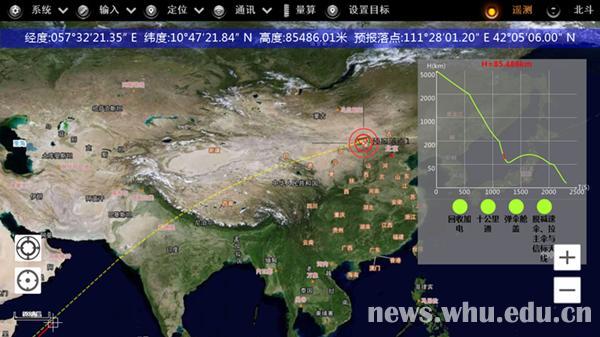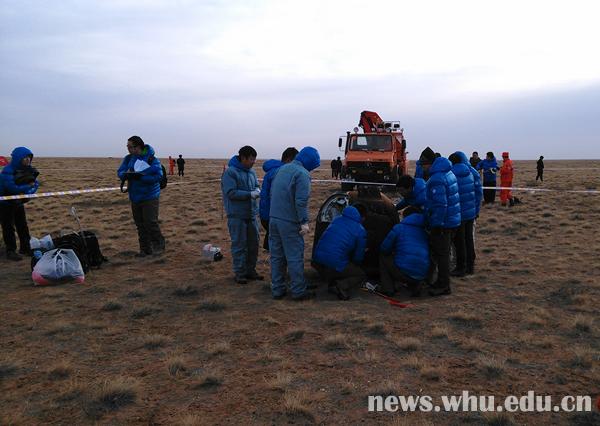On November 1st, the reentry test lunar module completed a smooth landing in center part of Inner Mongolia, marking the success of the first reentry test in China's lunar exploration program. Wuda Geoinformatics provided the search and retrieve section of the test with positioning technology—vehicle mounted geographical information systems for the phase three lunar exploration program landing field systems.
Chinese Lunar Exploration Program, also known as "Chang E Project", is China’s major aerospace project following the man-made satellites and manned spaceflight. Founded in 1999, Wuda Geoinformatics is WHU’s enterprise for applied science and technology specialized in the application of geographic information and intelligence services. With its strong automotive geographic information systems, portable GIS systems and innovative path planning programs, Wuda Geoinformatics stood out among the many prominent geographic information enterprises to become the chosen provider of GIS support in this test.

The vehicle was equipped with Beidou satellite navigation system, remote sensing technology, and geographic information technology. It used geographical information systems for phase three Lunar exploration program landing field systems. With the help of vector images and elevation data resources, it could recreate the landing field, and simulate the search and retrieve of the module on the recreated map. In addition, the system also accessed the Beijing command center status data, providing the track, including for spaces past the separation point, a forecast of the impact point and the feature point parameters, offering certified information guarantee for the search and retrieve.
“The officials attach great importance to the system. They believe the system will replace the traditional mode of search and retrieve according to paper maps and make the process more efficient and orderly,” project manager Gu Heng commented, “as for life at the site, it is better than we thought.” Regarding the difficulties, Gu Heng explained that since time was limited, it was common for the scientists to work sometimes, even after midnight, but their hard work was rewarded by the completion of the system.

China’s Lunar Exploration Program was led and organized by the National Defense Science and Technology Industrial Development Bureau. The project was divided into three stages of "orbit", "land" and "return" and it was scheduled for completion before 2020.
(Rewritten by Liu Yinglun, edited by Diana & Sijia Hu)